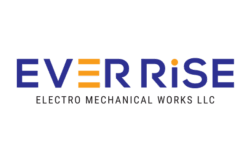Mechanical, Electrical, and Plumbing (MEP) contracting is a crucial component of any construction project. In the UAE, a rapidly growing hub for real estate and infrastructure, MEP systems play a vital role in ensuring energy efficiency, sustainability, and occupant comfort. However, MEP requirements vary significantly between residential and commercial projects. This article explores the key differences, challenges, and considerations for MEP contracting in both sectors.
Understanding MEP Contracting
MEP contracting involves the design, installation, and maintenance of essential building systems, including:
Mechanical Systems: HVAC (Heating, Ventilation, and Air Conditioning) for climate control.
Electrical Systems: Power distribution, lighting, and backup systems.
Plumbing Systems: Water supply, drainage, and fire suppression systems.
Differences Between Residential and Commercial MEP Contracting
1. Project Scale and Complexity
Residential Projects: Typically smaller in scale, requiring simpler MEP systems. Standardized HVAC units, electrical wiring, and plumbing are used for villas, apartments, and townhouses.
Commercial Projects: More complex, involving large-scale HVAC, advanced electrical infrastructure, and sophisticated plumbing solutions for offices, malls, and hotels.
2. Regulatory Compliance and Standards
Residential: Must adhere to local municipality regulations, DEWA (Dubai Electricity and Water Authority) standards, and civil defense fire safety codes.
Commercial: Subject to more stringent regulations, including Dubai Green Building Regulations, ASHRAE standards for HVAC, and LEED certifications for sustainability.
3. Energy Efficiency and Sustainability
Residential: Focused on cost-effective, energy-efficient solutions like solar water heaters and LED lighting.
Commercial: Prioritizes sustainability with smart building automation, energy recovery systems, and advanced HVAC designs to meet green building standards.
4. HVAC System Requirements
Residential: Split or central air conditioning systems with simple ventilation setups.
Commercial: Requires extensive air handling units (AHUs), chillers, and centralized cooling systems like district cooling to support large spaces.
5. Electrical and Plumbing Considerations
Residential: Standardized electrical layouts and basic plumbing needs.
Commercial: Involves higher power loads, emergency backup generators, complex drainage, and specialized piping for industries like healthcare and hospitality.
Challenges in MEP Contracting for UAE Projects
Extreme Climate Conditions: HVAC systems must be optimized for high temperatures and humidity.
Regulatory Changes: Compliance with evolving UAE sustainability mandates and international safety codes.
Material Selection: Using corrosion-resistant and durable materials suitable for the UAE’s environment.
Integration with Smart Technologies: Growing demand for IoT-enabled MEP solutions in both residential and commercial sectors.
Choosing the Right MEP Contractor in the UAE
When selecting an MEP contractor, consider:
Experience in handling both residential and commercial projects.
Compliance with UAE regulations and sustainability standards.
Use of advanced MEP technologies for energy efficiency.
Proven track record in delivering projects on time and within budget.
Conclusion
MEP contracting is a critical aspect of construction in the UAE, with distinct approaches for residential and commercial projects. While residential projects focus on cost-effective and straightforward MEP solutions, commercial developments require advanced, large-scale systems with a strong emphasis on sustainability. Choosing the right MEP contractor ensures efficiency, compliance, and long-term success in both sectors.
